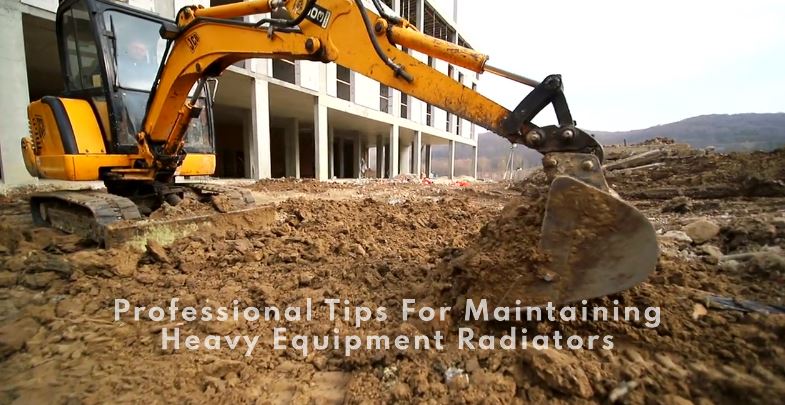Proper maintenance of heavy equipment radiators is essential to ensure the cooling system operates effectively and to prevent overheating. Effective heavy equipment radiator maintenance is vital for preventing overheating and ensuring the cooling system’s optimal performance. Regular inspections, cleaning, coolant level checks, and adherence to manufacturer recommendations are key steps in safeguarding the equipment’s reliability and longevity.
Let us read further what experts of one of the best JCB telescopic handlers dealers are saying here –
Importance of radiators in heavy equipment
Radiators in heavy equipment play a pivotal role in maintaining optimal engine temperature, preventing overheating, and ensuring operational efficiency. They dissipate excess heat generated during equipment operation, preserving engine integrity. Overheating can lead to severe damage, costly repairs, and significant downtime.
Radiators are crucial for sustaining productivity and extending the lifespan of heavy machinery. Proper radiator maintenance is essential, as neglect can result in reduced performance, increased fuel consumption, and operational disruptions. As such, maintaining these cooling systems is imperative for the safety of operators, the longevity of the equipment, and overall project success in the construction, mining, and agricultural sectors. Do you want to Enhancing Construction Equipment Efficiency read full article to know more
Regular Inspection
Perform visual inspections of the radiator for any signs of damage, such as leaks, dents, or corrosion. Check for debris build-up, including dust, dirt, and mud, as these can impede airflow.
Cleaning
Keep the radiator and surrounding area clean. Use compressed air, a soft brush, or a pressure washer to remove dirt and debris regularly. Ensure that fins and tubes are free from blockages to maintain proper airflow.
Coolant Level
Maintain the coolant level at the recommended mark. Check it when the engine is cool, and top it up if necessary with the appropriate coolant mixture.
Coolant Quality
Use the right type of coolant recommended by the equipment manufacturer. Ensure it has the appropriate water-to-coolant ratio for your climate and operating conditions.
Pressure Test
Perform pressure tests on the cooling system to identify potential leaks. Address any leaks promptly to prevent overheating.
Radiator Cap
Inspect the radiator cap for signs of wear and replace it if necessary. A faulty cap can lead to cooling system problems.
Thermostat
Check and replace the thermostat as needed. A malfunctioning thermostat can cause overheating or insufficient cooling.
Hoses and Belts
Inspect radiator hoses and belts for wear, cracks, or leaks. Replace them if they are damaged or worn out.
Fan and Fan Clutch
Ensure that the radiator fan is working correctly and that the fan clutch engages properly when needed.
Temperature Gauge
Monitor the temperature gauge on your heavy equipment’s dashboard to detect any overheating issues in real-time.
Service Schedule
Follow the manufacturer’s recommended service schedule for the cooling system, including radiator flushes and coolant replacement.
Operating Conditions
Be mindful of operating conditions. In extreme environments or under heavy loads, pay extra attention to cooling system maintenance.
Protection
Use grille guards or screens to protect the radiator from flying debris or impact damage.
Emergency Supplies
Carry emergency supplies like spare coolant and basic tools for radiator repairs when operating in remote areas.
Training
Ensure that operators and maintenance personnel are trained on proper cooling system maintenance and troubleshooting procedures.
Summary
In this blog by the experts of the best JCB excavators dealer in Sonipat useful points have been shared by the author. Always remember that a well-maintained radiator and cooling system are crucial for the longevity and efficient operation of heavy equipment. Regular inspections and preventive maintenance can save you time and money in the long run by preventing costly repairs and downtime.


























